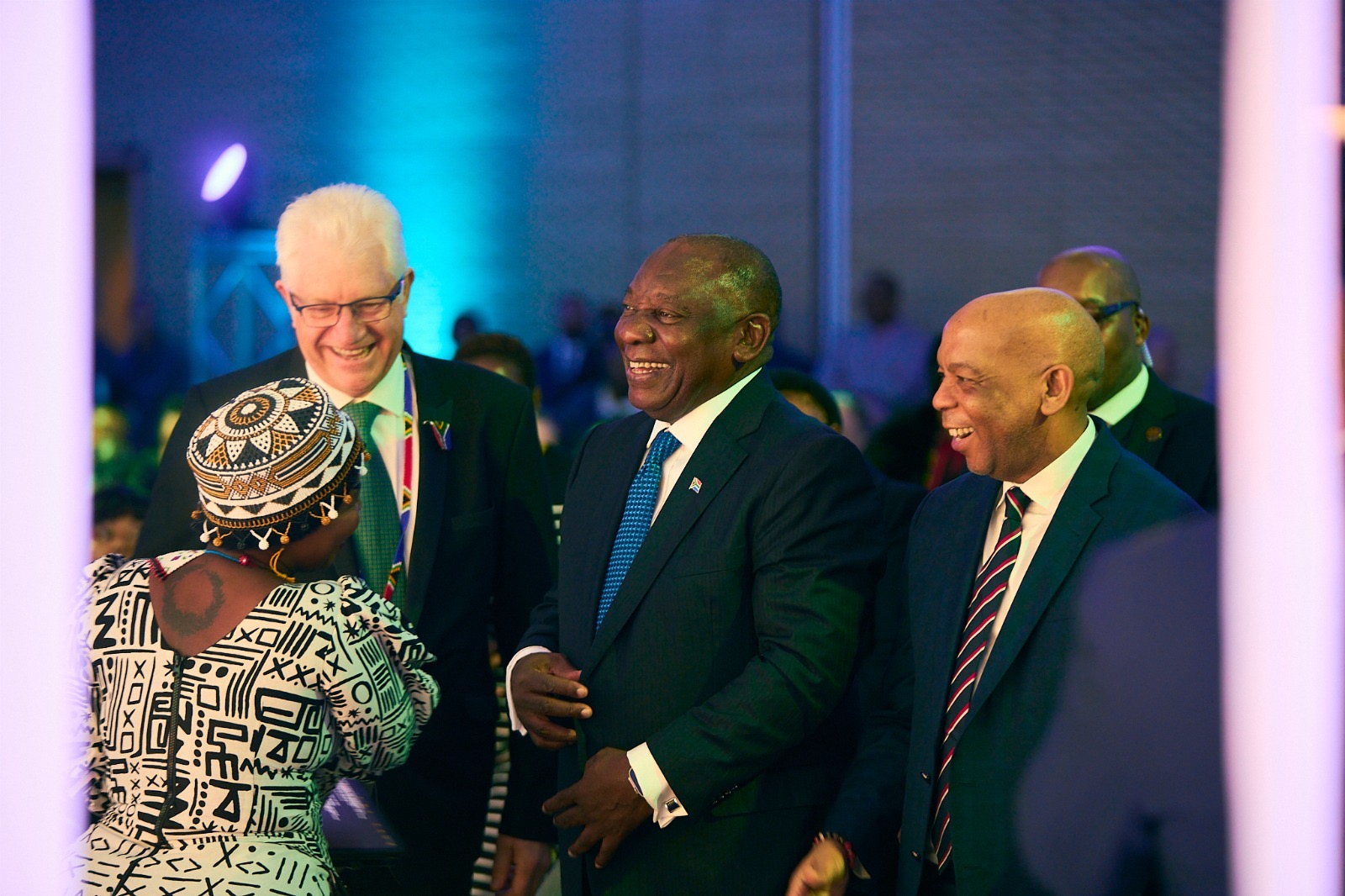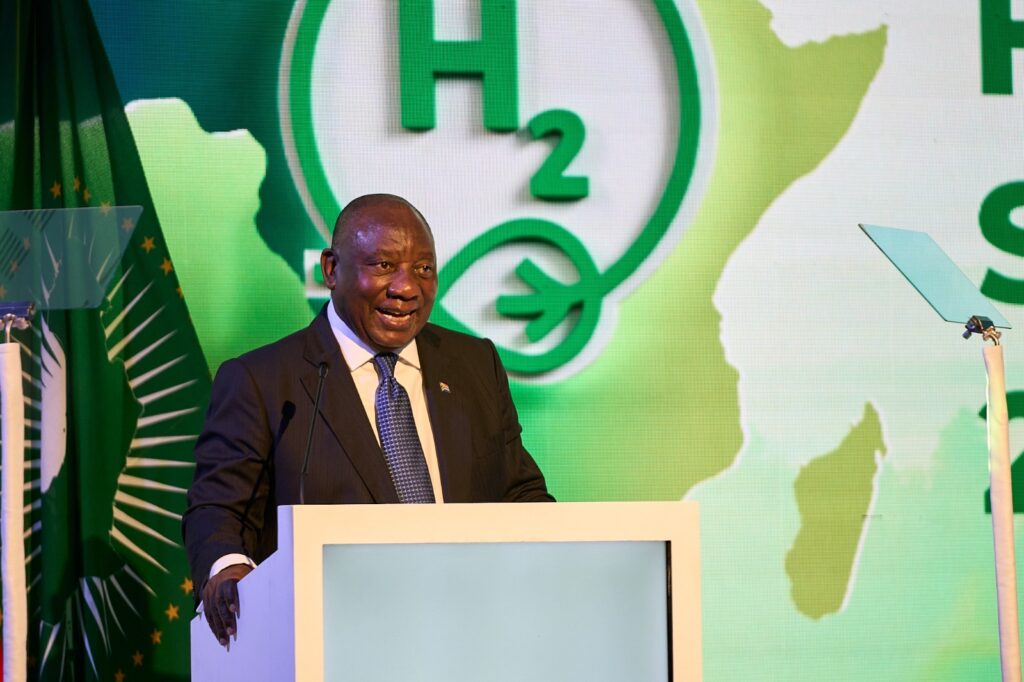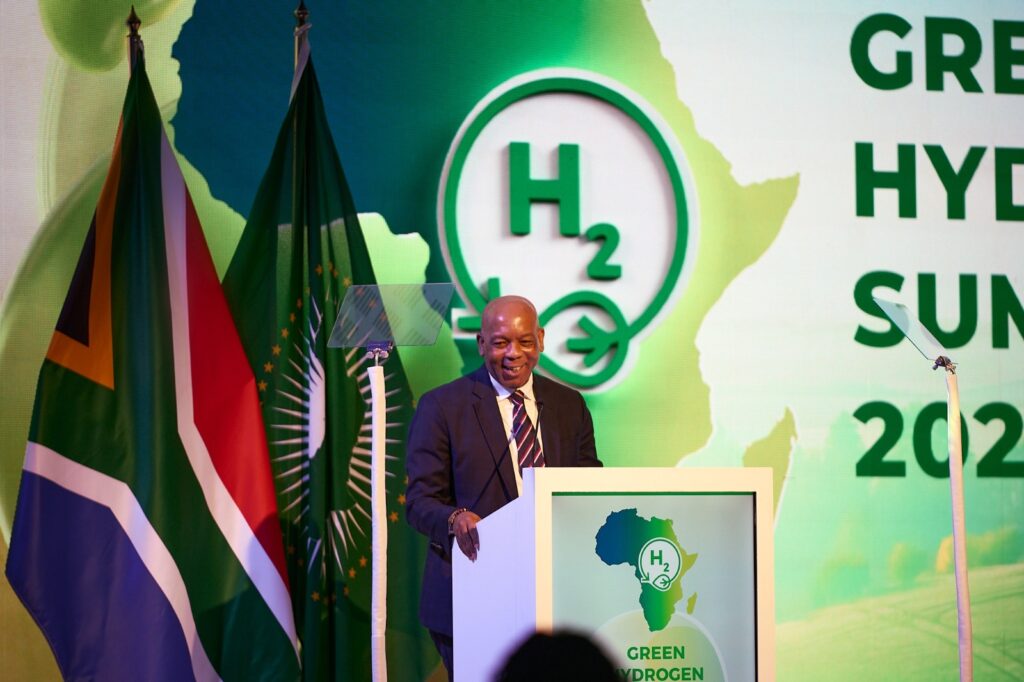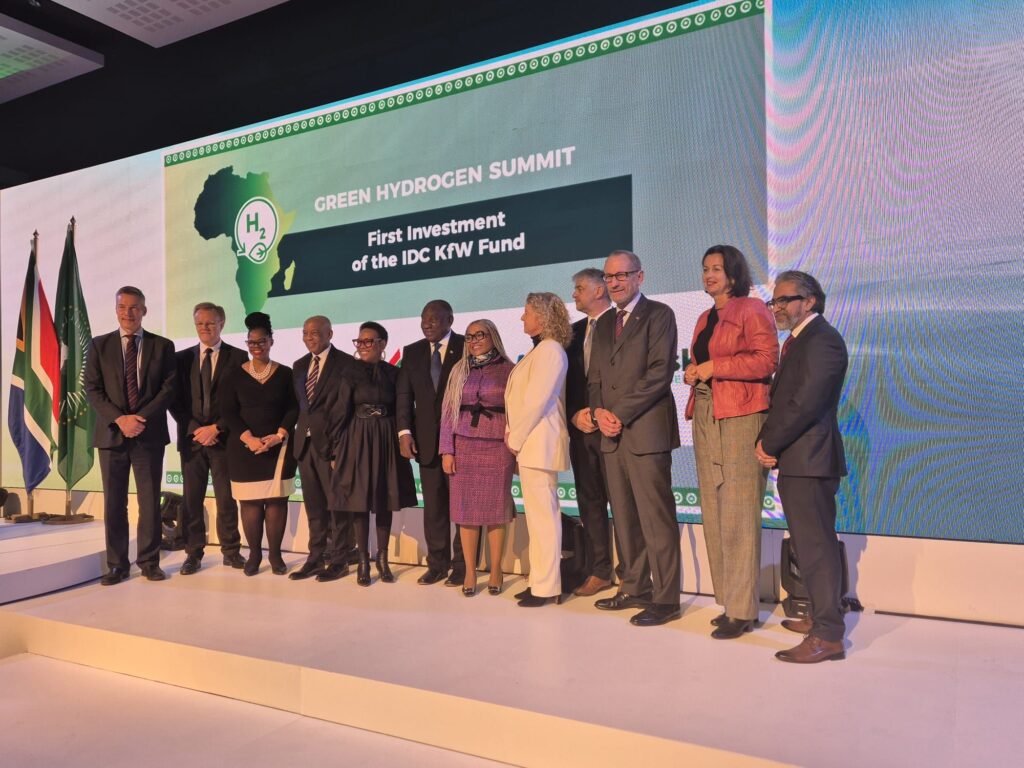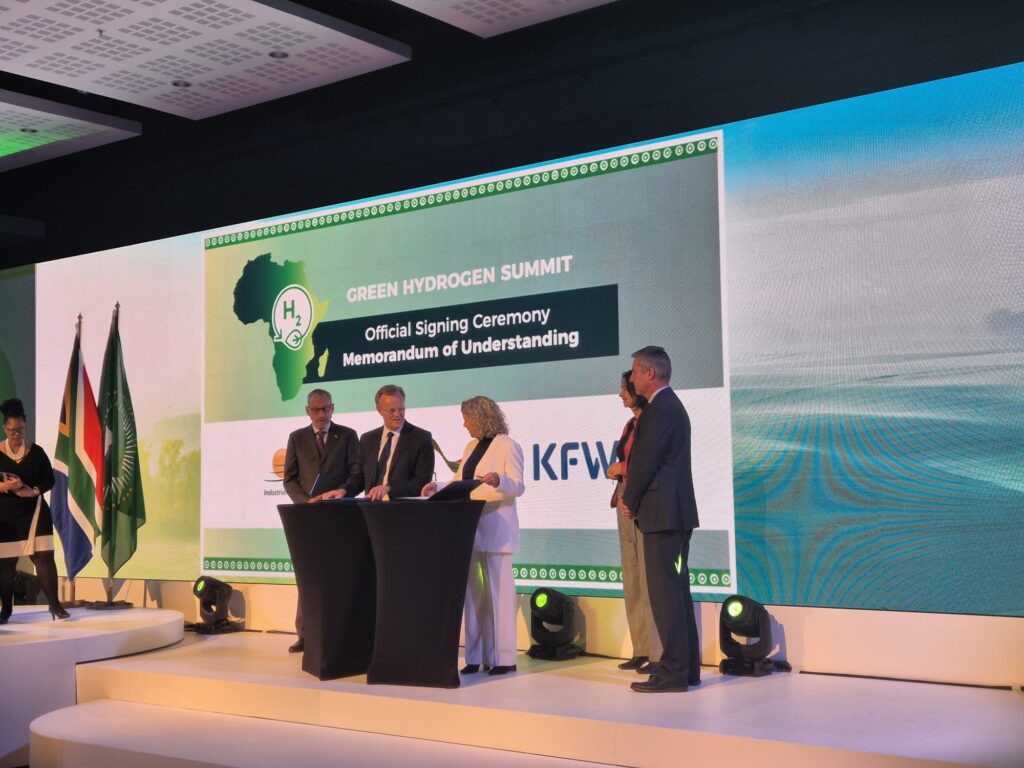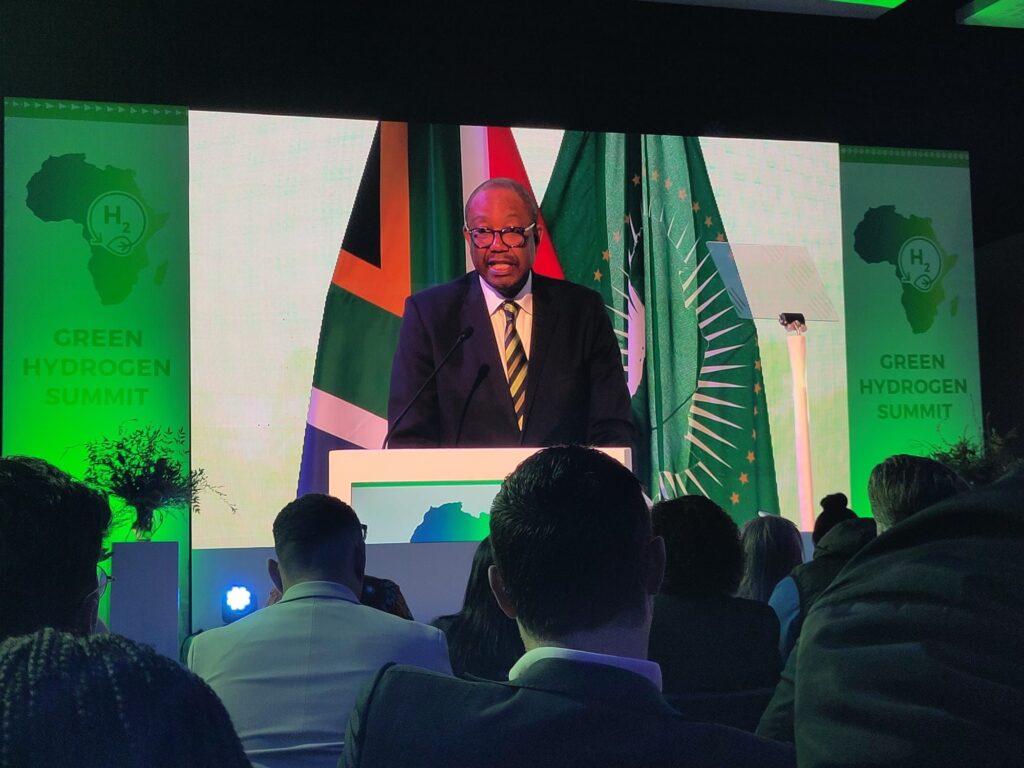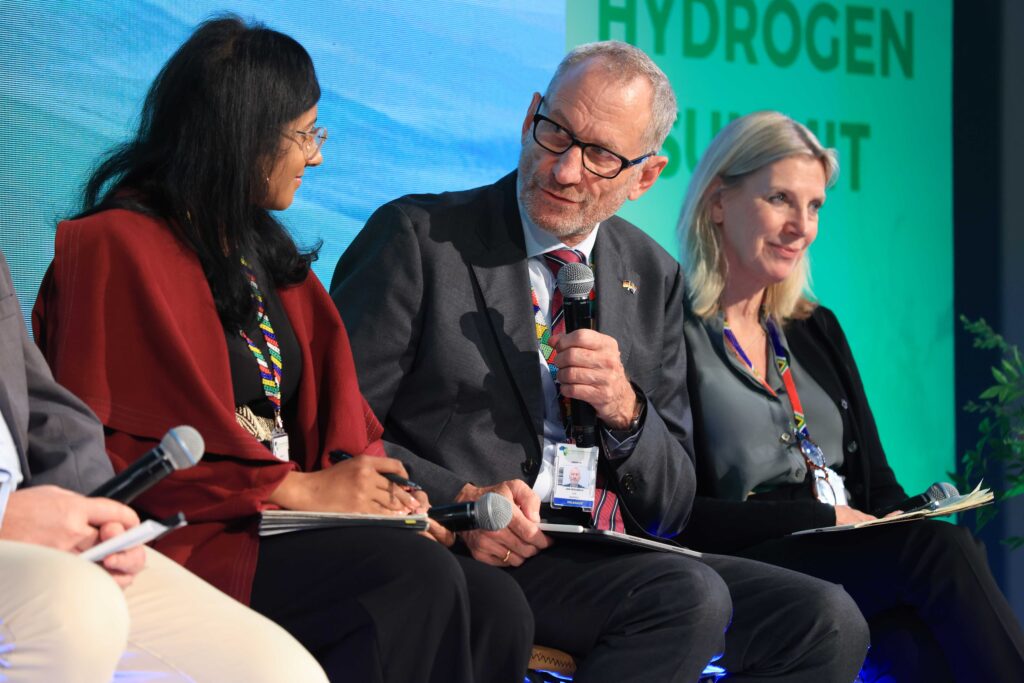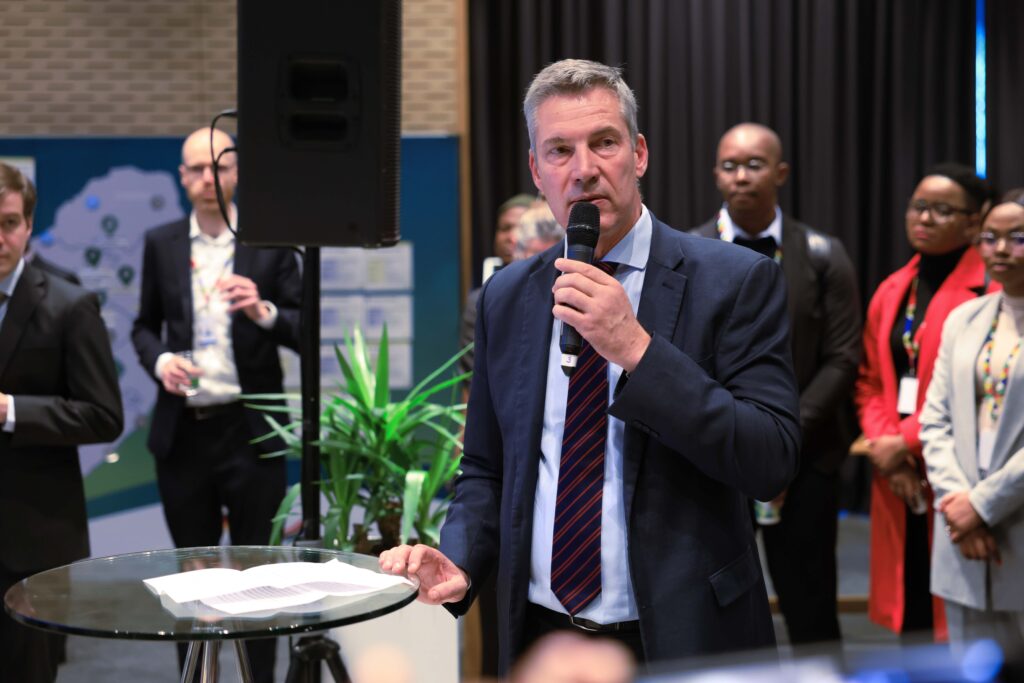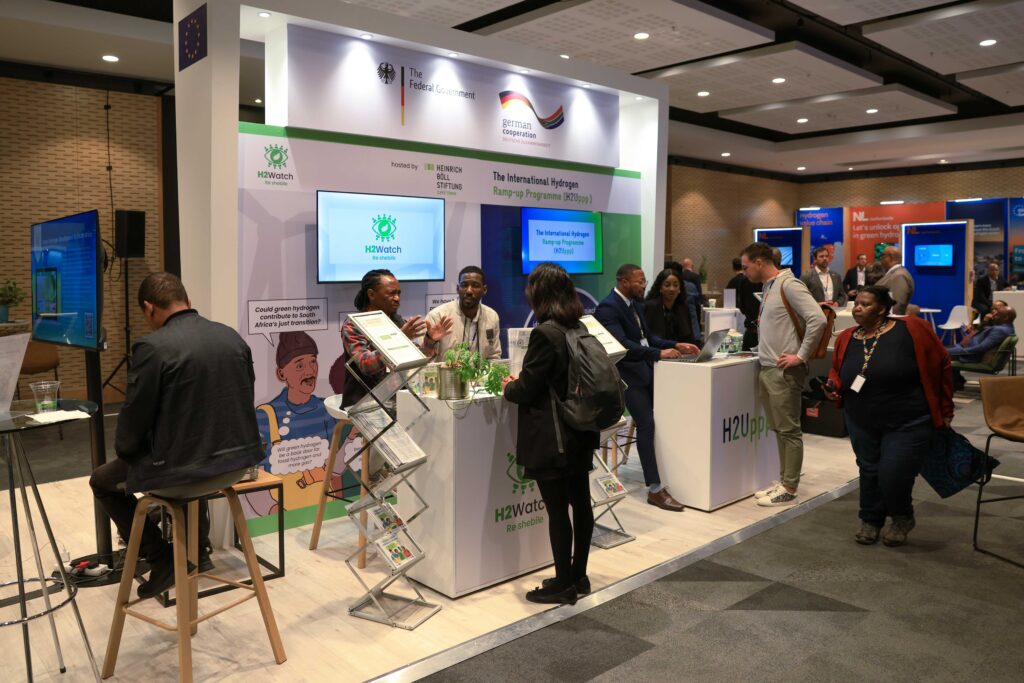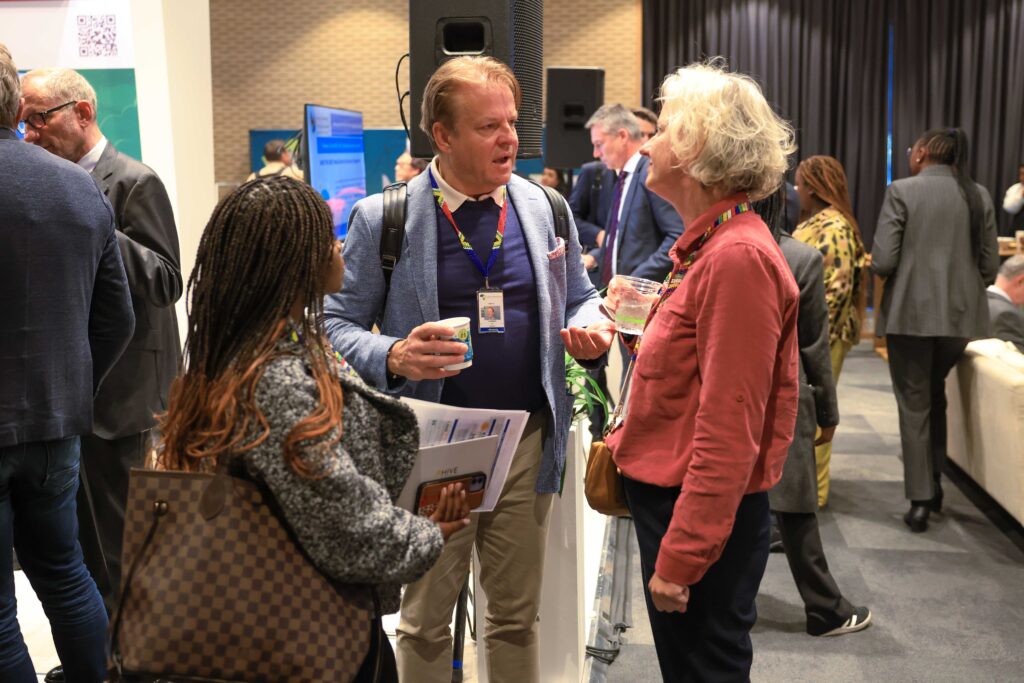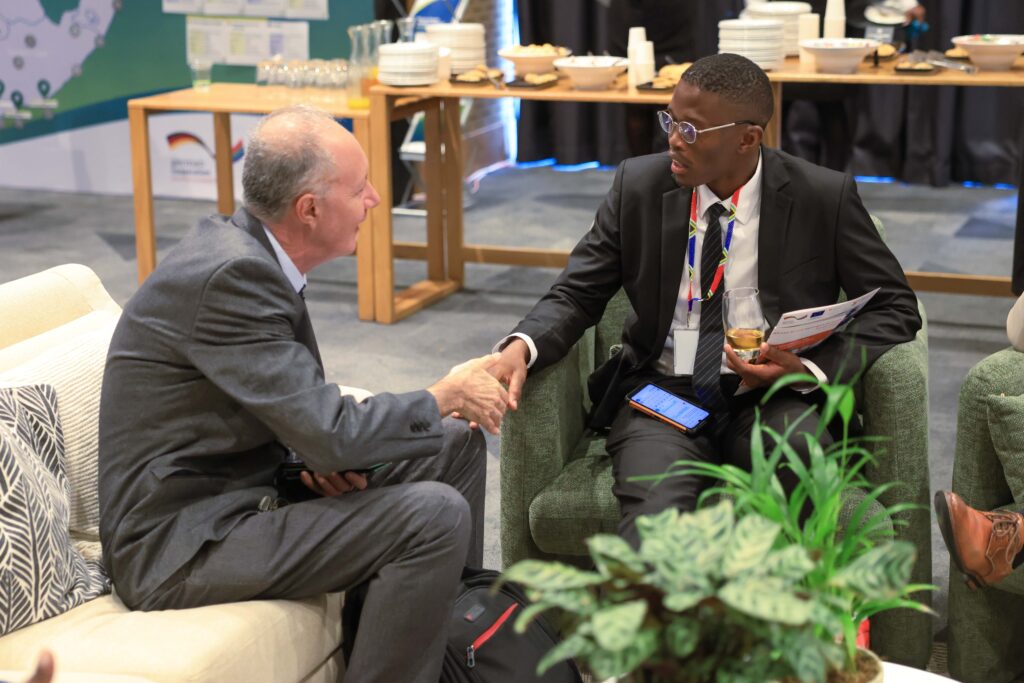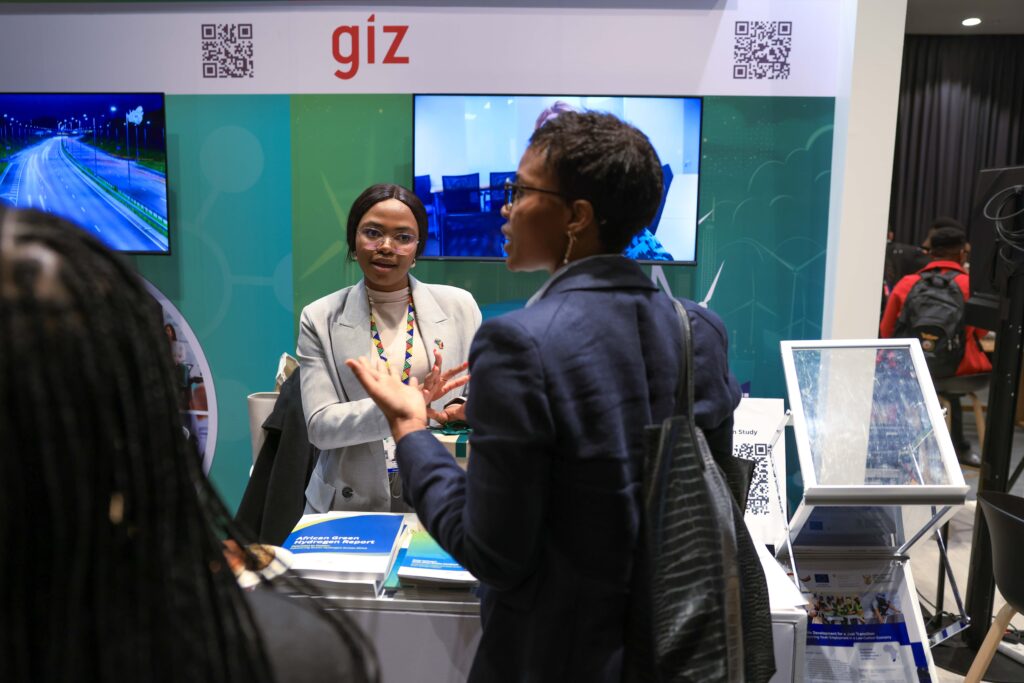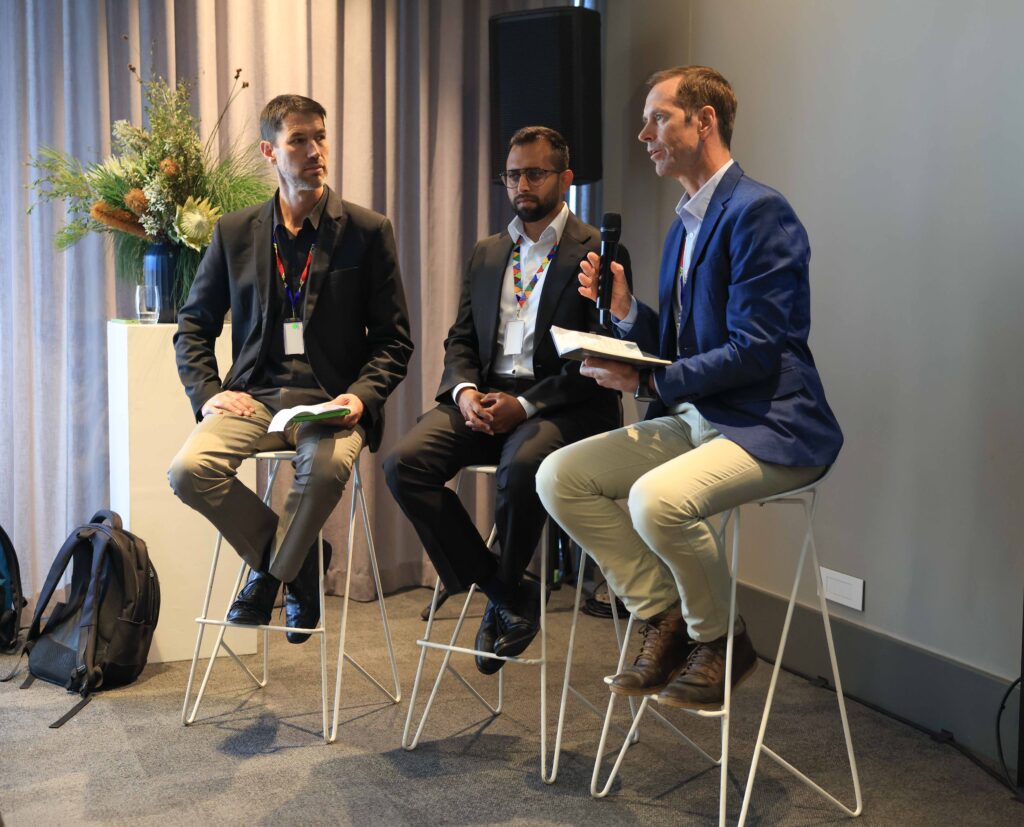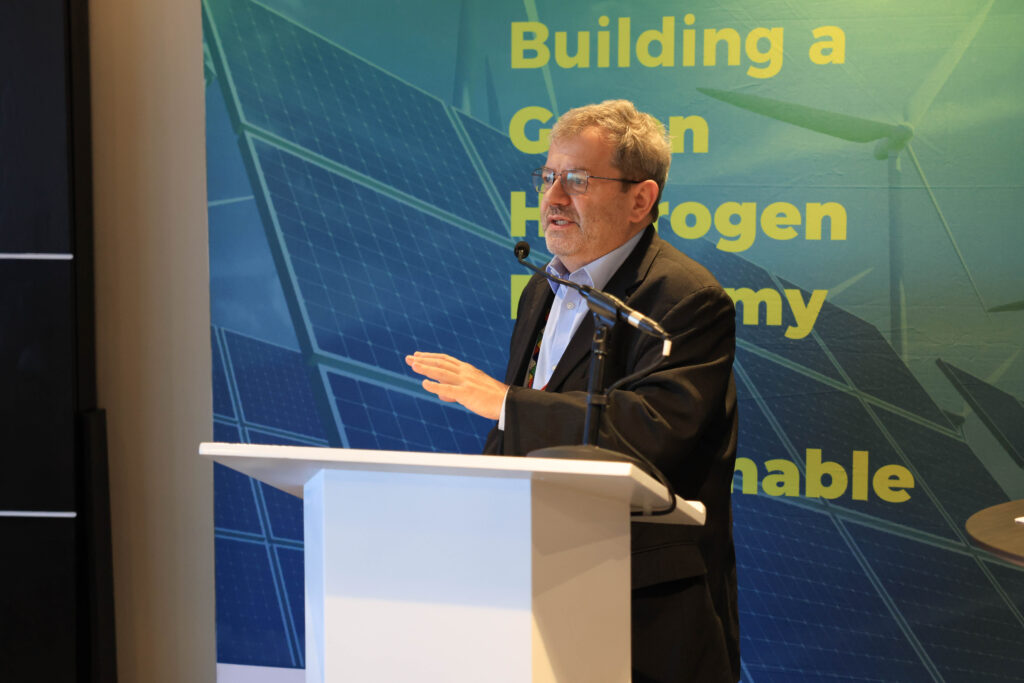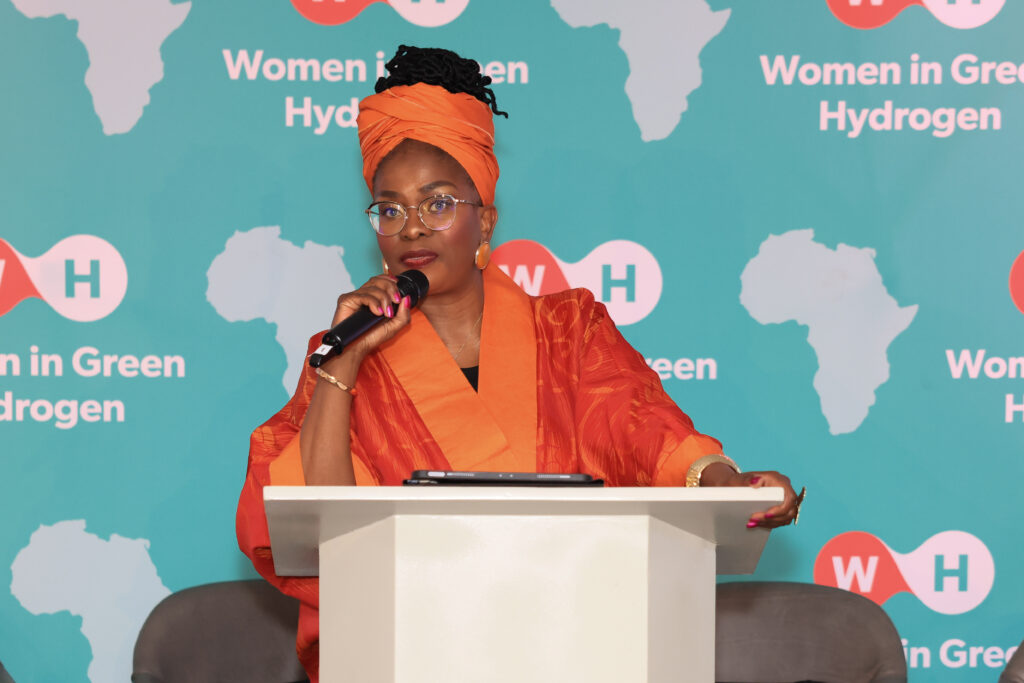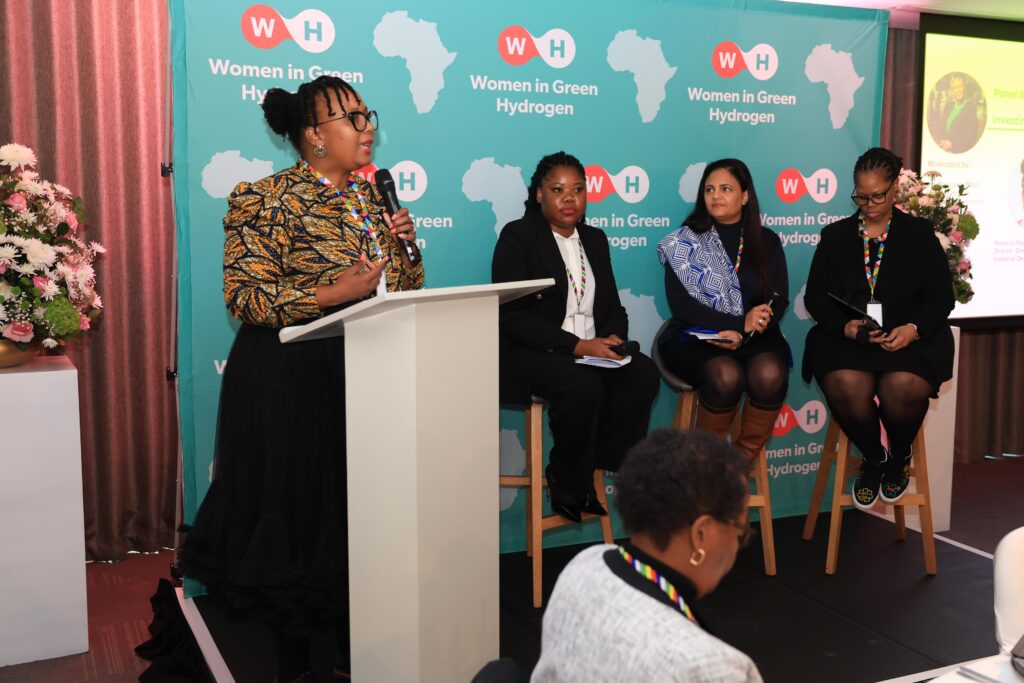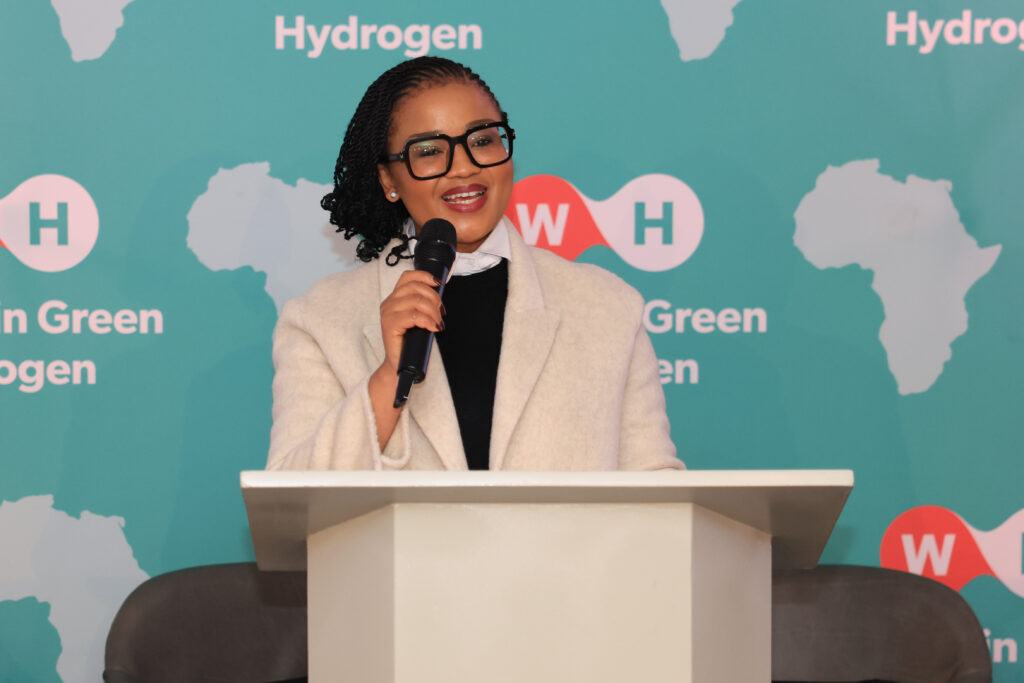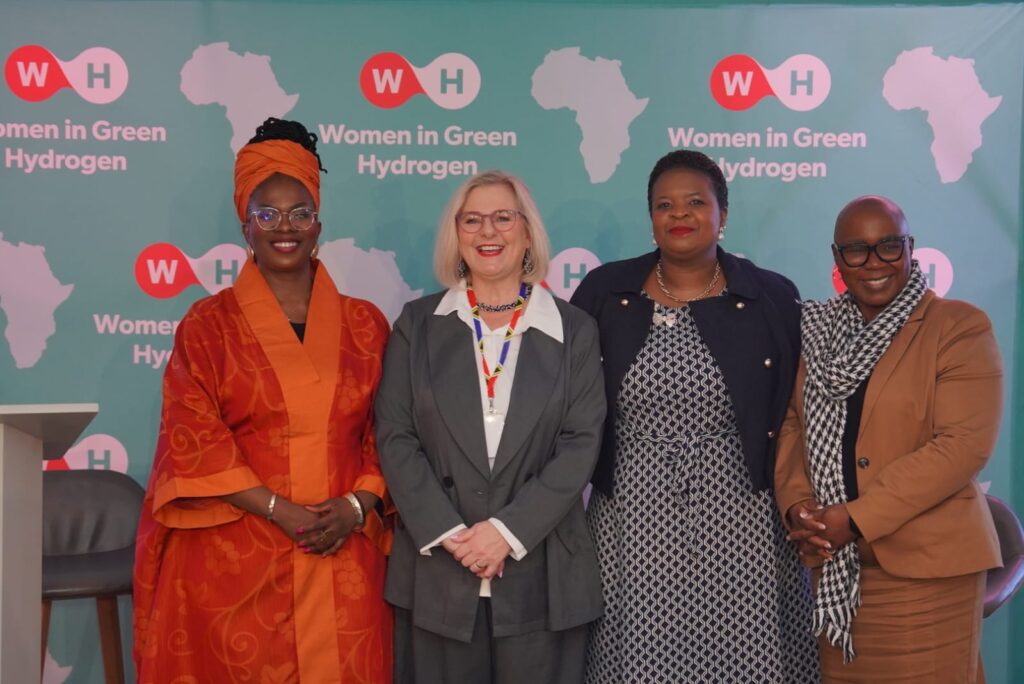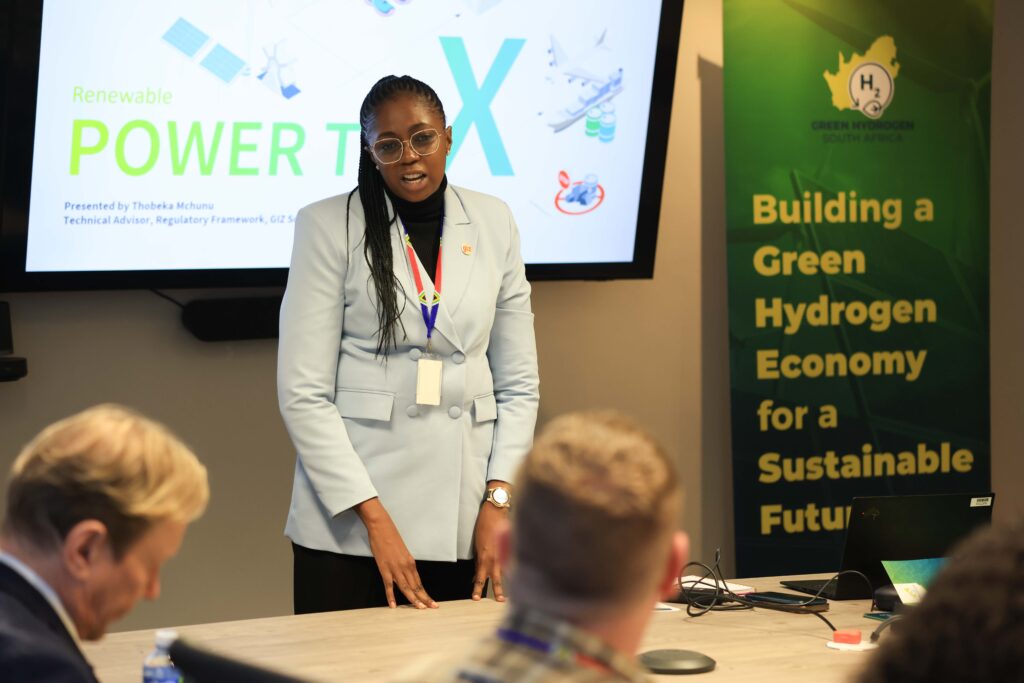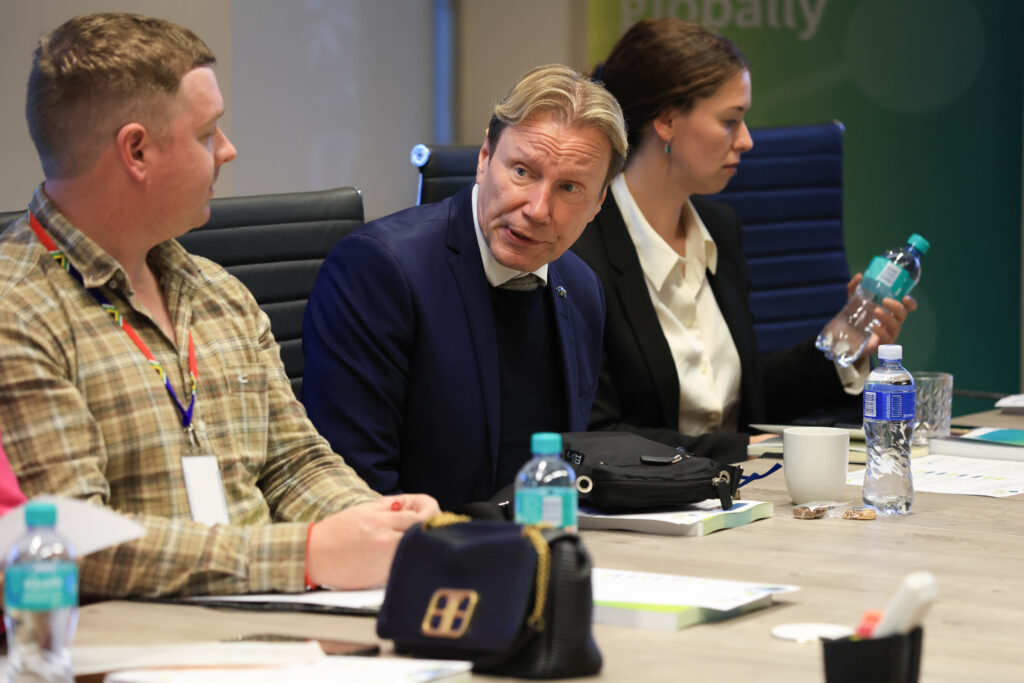South Africa is solidifying its position as Africa’s green hydrogen leader, a role the country is advancing further through its current G20 Presidency. Recognising the importance of regional collaboration and a shared continental vision, South Africa’s flagship event—the South African Green Hydrogen Summit—has evolved into the Africa Green Hydrogen Summit (AGHS) this year. This shift, encouraged by President Cyril Ramaphosa and Minister of the Department of Electricity and Energy Dr Kgosientsho Ramokgopa, reflects the commitment to foster cooperation across African countries and develop a unified approach to green hydrogen deployment.
President Ramaphosa opened the AGHS in Cape Town in June with a keynote address emphasising Africa’s unique opportunity to emerge as a global leader in green hydrogen. With 52 large-scale projects already announced across the continent and production projections between 30 to 60 million tonnes by 2050, the President underscored the urgency of translating plans into tangible outcomes.
Launch of the African Green Hydrogen Report
The Africa Green Hydrogen Report is the most comprehensive analysis to date of the continent’s green hydrogen potential. Minister Dr Kgosientsho Ramokgopa introduced the report as more than a technical document — describing it as a roadmap towards a sustainable, inclusive, and industrialised Africa. He emphasised how hydrogen must be developed as a catalyst for re- and industrialisation.
Developed in partnership between South Africa’s Department of Electricity and Energy, the African Green Hydrogen Alliance and Deutsche Gesellschaft für Internationale Zusammenarbeit (GIZ) GmbH, the report highlights Africa’s abundant renewable resources, strategic location, and youthful population as key advantages in leading the global hydrogen economy.
Funding announcements to bring projects on the ground forward
SA-H2 Fund grants $20 million to Coega Green Ammonia Project by Hive
The Climate Fund Managers (CFM) have officially committed support to the development of the Coega Green Ammonia Project, led by Hive Hydrogen South Africa—a joint venture between UK-based Hive Energy and South Africa’s BuiltAfrica. With $37 million invested in the SA-H2 Fund by PIC, IDC, and DBSA, up to $20 million is now allocated specifically to this ambitious project. Set to begin production in 2029, the Coega facility will have an annual production capacity of one million tonnes of green ammonia. The project exemplifies strong regional cooperation: it utilises wind energy from the Western Cape, solar power from the Northern Cape, and houses its plant and export port in the Eastern Cape. Positioned as a catalyst for South Africa’s green hydrogen economy, the Coega project promises significant economic and social impact.
Additional funding for the IDC-KfW Green Hydrogen Fund
In a second signing ceremony, the Industrial Development Corporation (IDC) and German Development Bank KfW jointly announced the first grant approval from the IDC-KfW Green Hydrogen Fund, awarded to the Prieska Green Hydrogen and Ammonia Project by Mahlako and CENEC. As custodian of the JET-IP hydrogen portfolio, the IDC is actively mobilising funding to address bankability challenges. Under this partnership, the IDC recently signed a Memorandum of Understanding with the KfW, securing an additional €17 million in grant funding. This commitment aligns with the IDC’s clear localisation strategy, which focuses on skills development—particularly for women and youth—to ensure a Just Transition for all. The IDC’s support extends across various initiatives, including green hydrogen pilot projects in Sasolburg, green steel development in the Western Cape, and advancements in fuel cell technology. The grant funding for the Prieska Project, together with the new KfW contribution, underscores the strength of South African–German cooperation in advancing the country’s green hydrogen sector.
Continuing close South African-German cooperation on green hydrogen
Cooperation between South Africa and Germany was further reinforced during discussions with Dr Jürgen Friedrich, Ministerial Envoy for Green Hydrogen Projects at the German Federal Ministry for Economic Affairs and Energy, and Enrico Brandt, Deputy Head of Mission at the German Embassy in South Africa. Both officials reaffirmed their commitment to supporting a green and just development through green hydrogen and Power-to-X.
The German Pavilion provided a platform for organisations including GIZ South Africa, the International Power-to-X Hub, H2Uppp, and H2Watch to present their ongoing efforts in supporting South Africa’s green hydrogen development. These programmes contribute through coordinated international cooperation and the exchange of technical expertise, aligning with broader strategic objectives to advance the country’s Power-to-X economy.
Knowledge Bits & Practice Tools sessions: Enabling practical progress
A series of focused sessions hosted by GIZ showcased practical tools and approaches to support project developers, policymakers, and industry stakeholders in scaling Power-to-X initiatives:
Community Development Toolkit (CDTK)
This toolkit provides practical, step-by-step guidance for community development managers in green hydrogen companies, helping ensure that projects are inclusive and responsive to local needs. At the summit, Moagi Radebe, Technical Advisor, H2.SA, GIZ discussed practical insights from the piloting with Zanele Heinermann, COO, Green eFuels Producers.
Power-to-X Business Opportunity Analyser
The Business Opportunity Analyser is an interactive tool designed to identify regions with promising business opportunities across the Power-to-X value chain, assisting investors and developers in targeting viable project locations.
An Excel-based model that allows users to design and optimise potential production plants for e-ammonia, e-methanol, e-SAF, and green hydrogen across multiple sites in South Africa, including levelised cost calculations.
Zaffar Hussain, Project Lead PtX Africa, Agora Industry discussed with Aldrich Louis, General Manager, ArcelorMittal South Africa and Hilton Trollip, Research Fellow, University of Cape Town how the Business Opportunity Analyser can help in comparing the opportunities for producing different PtX products at different sites in South Africa. Thomas Roos, Senior Researcher, Council for Scientific and Industrial Research (CSIR) and Shaun Pershad, Chief Engineer, Eskom discussed how the PtX Costing Tool can be used to identify key levers for the levelised costs of different PtX products, e.g. oversizing of renewables production and shut down times of the plant.
In a second session, H2Uppp presented its approach to supporting early-stage PtX projects, with Chris Heinemann, CCO, Green eFuels Producer (GeFP) and Tjasa Bole-Rentel, Business Case Development Manager, Enertrag SA.
Fact-based policymaking for South Africa’s Power-to-X economy
During another knowledge session, Alistair McMaster, Director Sustainable Energy, Eastern Cape Department of Economic Development, Environmental Affairs and Tourism, Herman Jonker, Manager, Western Cape Department of Economic Development and Tourism, and Zaffar Hussain, Project Lead PtX Africa, Agora Industry discussed the need for policy coherence, responsible water use, interprovincial partnerships and targeted incentives to establish a viable green hydrogen market with moderator Medinah Willies, Advisor at the International PtX Hub, GIZ.
Other knowledge sessions discussed topics such as sourcing sustainable minerals through seawater desalination brine and how to enable a bankable demand.
Celebrating women’s leadership: Women in Green Hydrogen breakfast
The summit also hosted a Women in Green Hydrogen (WiGH) Breakfast in partnership with the Industrial Development Corporation (IDC). Her Excellency Lerato Matoboge, African Union Commissioner for Infrastructure and Energy, opened the event, highlighting the importance of platforms that amplify women’s leadership in green hydrogen and energy transition.
Deputy Ministers Samantha Graham-Maré (Electricity and Energy), Nomalungelo Gina (Science, Technology and Innovation), and Mimmy Martha Gondwe (Higher Education and Training) shared insights on gender equality, inclusive talent pipelines, and the necessity for social and institutional change alongside technological advancement. Together, the Departments of Higher Education and Training (DHET) and Science, Technology and Innovation (DSTI) launched the Hydrogen Online Global Mentorship Platform, aiming to support emerging talent.
Mpho Mookapele, CEO of the Energy and Water Sector Education and Training Authority (EWSETA), emphasised the need to raise awareness of green hydrogen career opportunities among young professionals. The ensuing panel, moderated by Bongiwe Moni, Director External Capacity Development & Internships, Human Sciences Research Council (HSRC) with Rebecca Maserumule, Director of Green Hydrogen JET IP, Industrial Development Corporation, Nthombifuthi Promise Mnisi, Investment Officer, Development Bank of Southern Africa, and Mercia Geises, CEO, Namibia H2 Fund Managers, Climate Fund Managers raised concrete next actions for closer cooperation to support women in the African green hydrogen sectors.
Building capacities for coherent policy making to enable green hydrogen markets
The day before the AGHS 2025, Green Hydrogen South Africa, the International Power-to-X Hub and Wesgro jointly hosted a high-level Power-to-X training session. It brought together key stakeholders and decision-makers to explore essential themes including policy and regulation, sustainability, production infrastructure, and global best practices and models. Participants from the EU Delegation, Eskom, the European Investment Bank, UNIDO, the Department of Electricity and Energy, and the Department of Trade, Industry and Competition (dtic) contributed their expertise to shape South Africa’s green hydrogen future. The training represents a vital step in building capacity and aligning South Africa’s hydrogen ambitions with global pathways, advancing the country’s transition towards a sustainable and resilient energy economy.
Strong momentum for closer African cooperation
The African Green Hydrogen Summit 2025 showcased South Africa’s leadership in shaping a coordinated and inclusive African green hydrogen economy that reflects its broader commitment to sustainable development, energy security, and industrial transformation. Through regional cooperation and capacity building, Africa’s green hydrogen future is taking concrete form.
